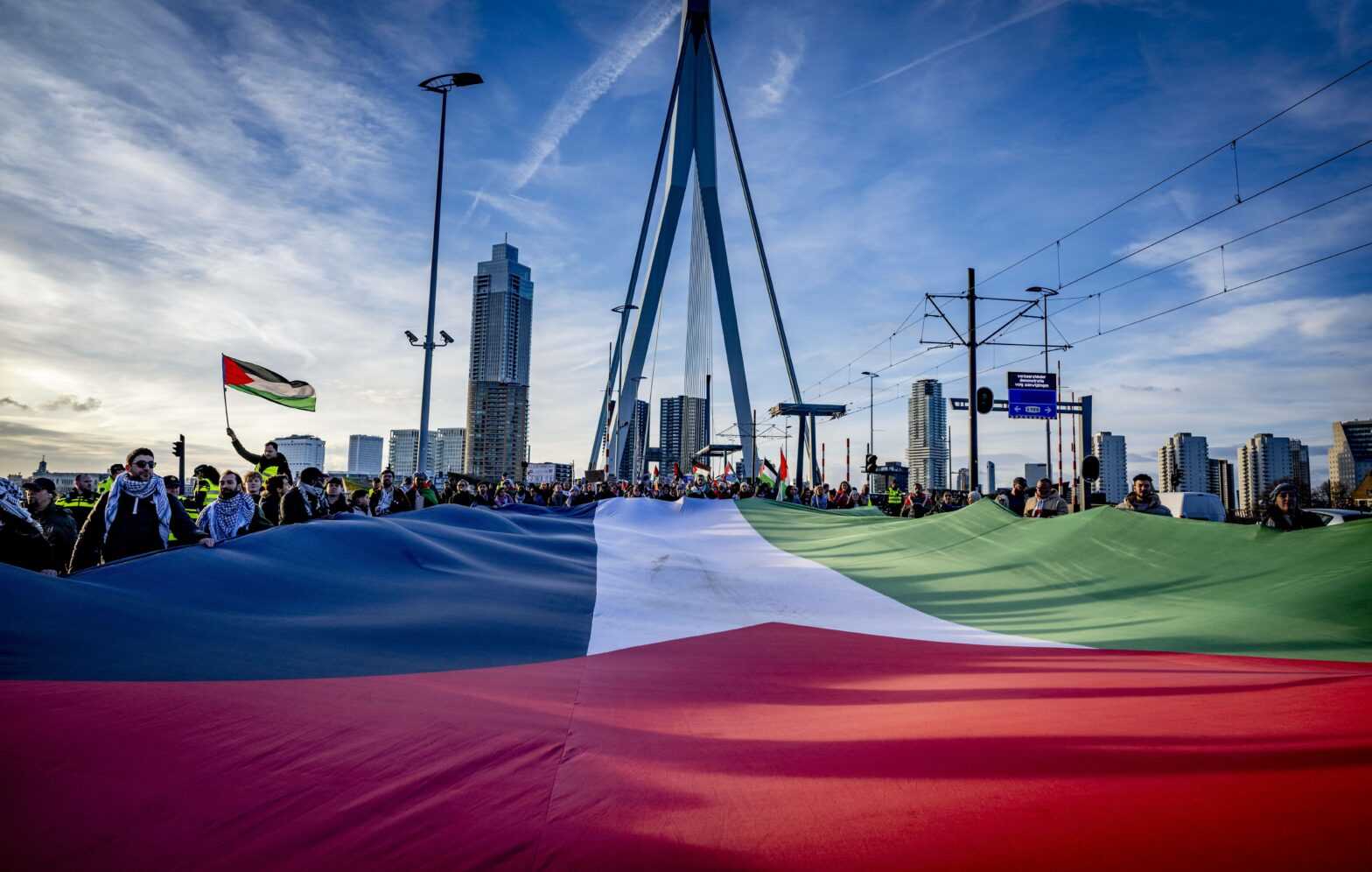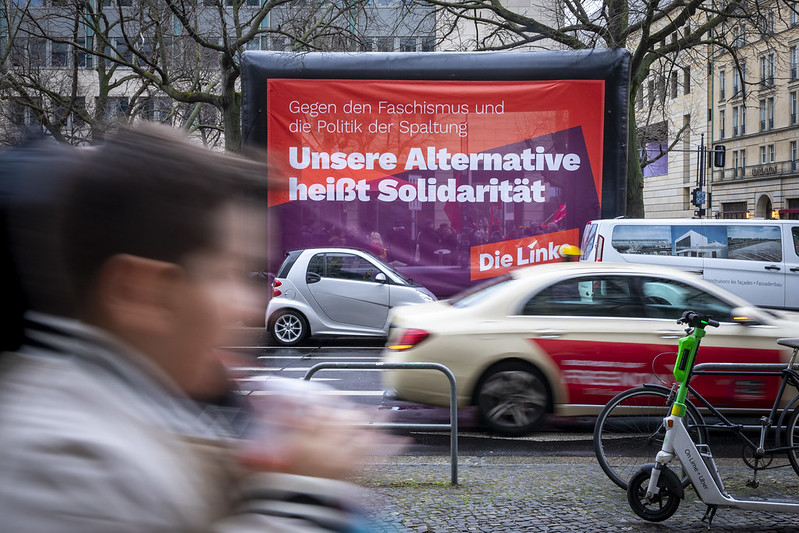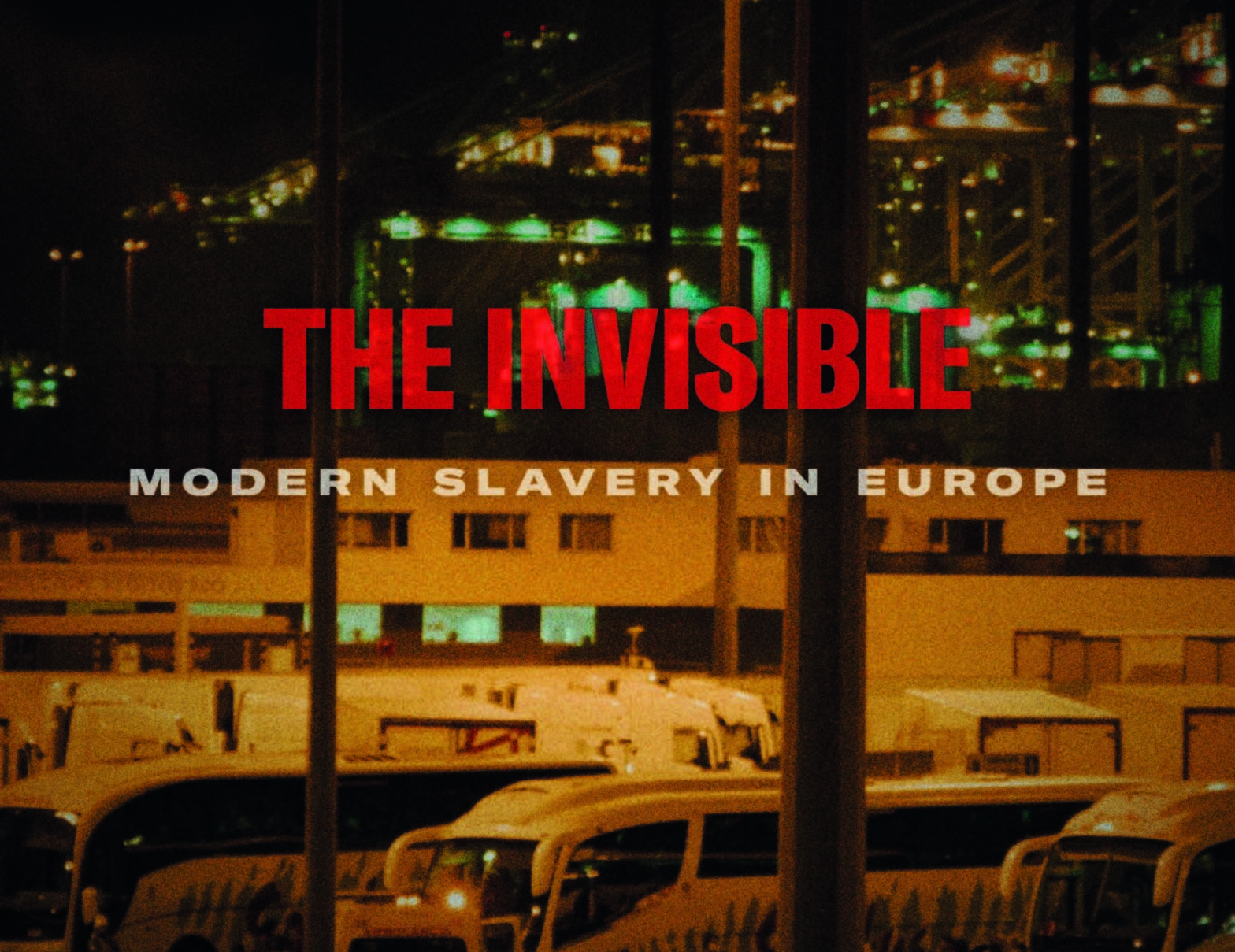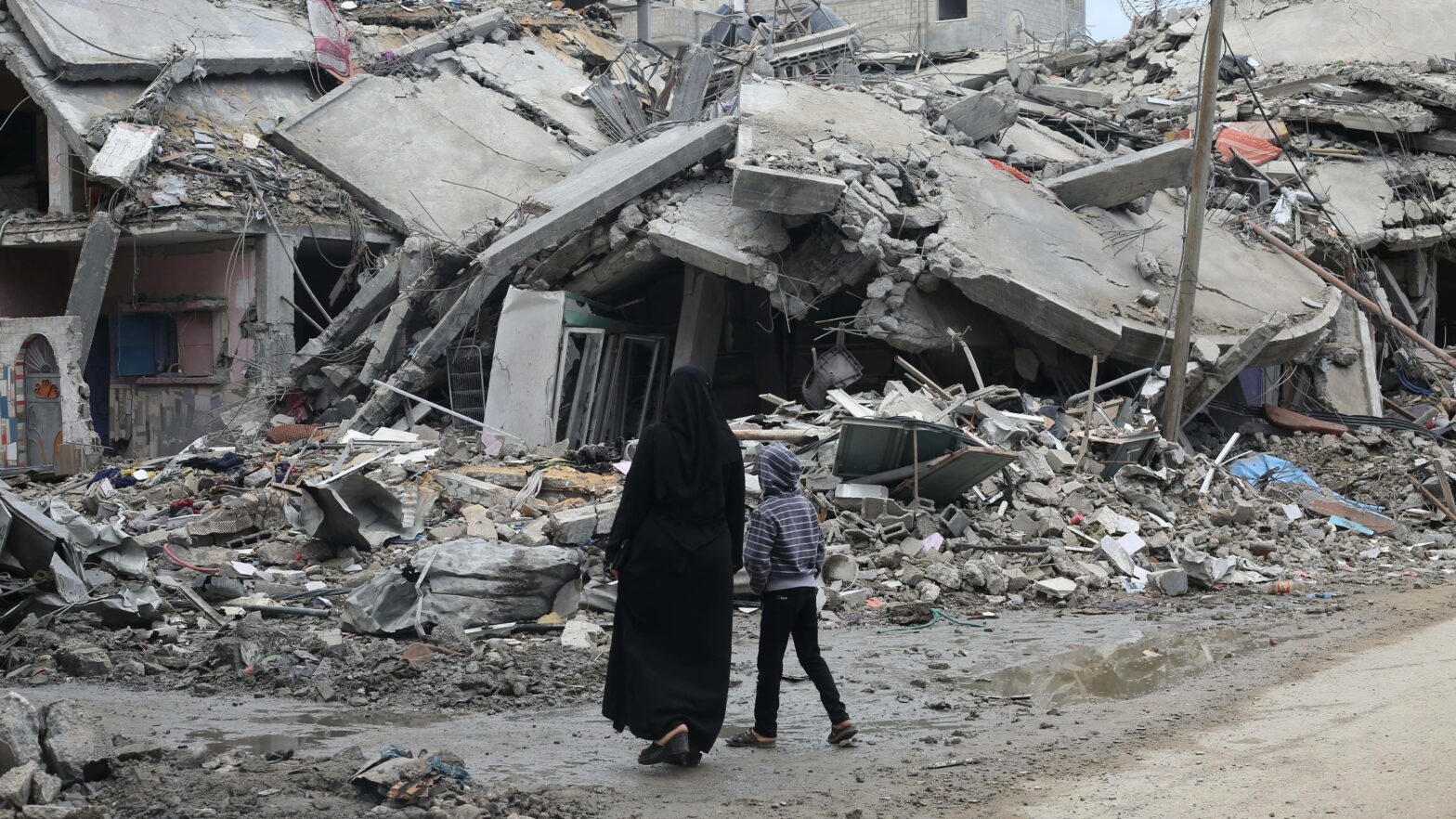Share Twitter Facebook Email Copy URL
If we were to make an account of the global health scenario today, we would have to start recognizing that health has continued to be the terrain of tremendous geopolitical gaming since the new coronavirus came to plague the world in 2020. We now know it: the pandemic should have never occurred in the first place. This is what the WHO Independent Panel for pandemic preparedness and response outspokenly told the international community in its report last May[1]. The world had all the technical knowledge and tools to confine the viral evolution and make SARS-CoV-2 a geographically controlled epidemic. It simply did not do it. The global health catastrophe, with its social and economic crises attached, is the consequence of governments’ failure to abide by the existing rules and cooperate with one another.
In the face of that historic responsibility, Member States’ impossibility of coming together dwells visible still. There is no lack of multilateral meetings around health in this second year of the pandemic, but the increasing fragmentation of separate initiatives on the one hand, and the vaccine apartheid story on the other, restitute a disheartening sense of reality: global health solidarity remains a mirage. COVID-19 continues to rage in the meantime with its pedagogy of new variants. Indeed, as we write, China orders mass testing in Wuhan after an unusually wide series of COVID-19 outbreaks in the city where the disease was first detected in late 2019[2]. Cases, hospitalizations, and deaths are spiking in many parts of the world.
The pandemic is no doubt redesigning the international public health order, with new forms of protagonism and significant power grabs, masked by a declared desire for interdependence and collaboration. The World Health Organization (WHO), since long deliberately fragilized and gated in 2020 in the abrasive tension between China and the US, has been further weakened by this geostrategic approach to the health emergency. Donald Trump’s hazardous decision to depart from the world’s only public institution on international health, right at the time when the USA – a founding member of the WHO – was at the epicenter of the global COVID-19 spread[3], hit the world with a strong symbolic significance. Member States’ sense of belonging to the institution is growing friable in the absence of presential negotiations in Geneva and in the reshaping of power balance across the geopolitical blocks, each one claiming its individual new leadership, and implicit neo-colonial agendas. The European Union has steered the coalition to support the WHO in dire straits, jumping easily into the vacuum left by the US with new reform proposals and the notion of a new treaty for pandemic preparedness and response. The Biden administration has attempted to restore the US international leadership through even bold political statements – for example the idea of suspending patents on COVID-19 vaccines – but his declamatory mode will not hurt China, whose grand supremacy game is time-bound and highly focused on governance.
The most worrying indication is that the turbulence caused by the pandemic and the public’s disorientation, due to the lack of a truly capable multilateral approach for dealing with it, may lay up the justification for a new twist in global health governance. This would be aimed at pushing through pro-corporate measures, with the good excuse of a revamped health security agenda for future pandemic response. The recently released report of the G20 High Level Independent Panel for Financing Global Commons for Pandemic Preparedness and Response, with its recommendations to establish a Global Health Threats Board and Fund, is a case in point[4]. Who cares if this approach is likely to be a misconceived agenda[5], given the new lines of tension with which COVID-19 has come to challenge traditional global health beliefs? Who cares if new critical determinants of health have made their way through the global health governance malaise – for example: planetary concerns related to biodiversity and the threads posed by intensive agriculture as drivers of zoonotic diseases; or the formidable wall of health discrimination and inequalities featuring health institutions and healthcare settings?
In many countries around the world the pandemic is stirring unrest and people are getting angrier about the socio-economic hardships they face. On the other hand, in the midst of the health crisis, this top-down agenda remains unchallenged, its main avenue being the inevitable but problematic practice of “zoom multilateralism”. The anticipated conclusion of the hybrid 74th World Health Assembly (WHA) in May, which took place immediately after the G20 Global Health Summit in Rome and where major geopolitical arrangements were negotiated, may shine a light on some of the gaps of a multilateral system that is gradually distancing itself from its original intent.
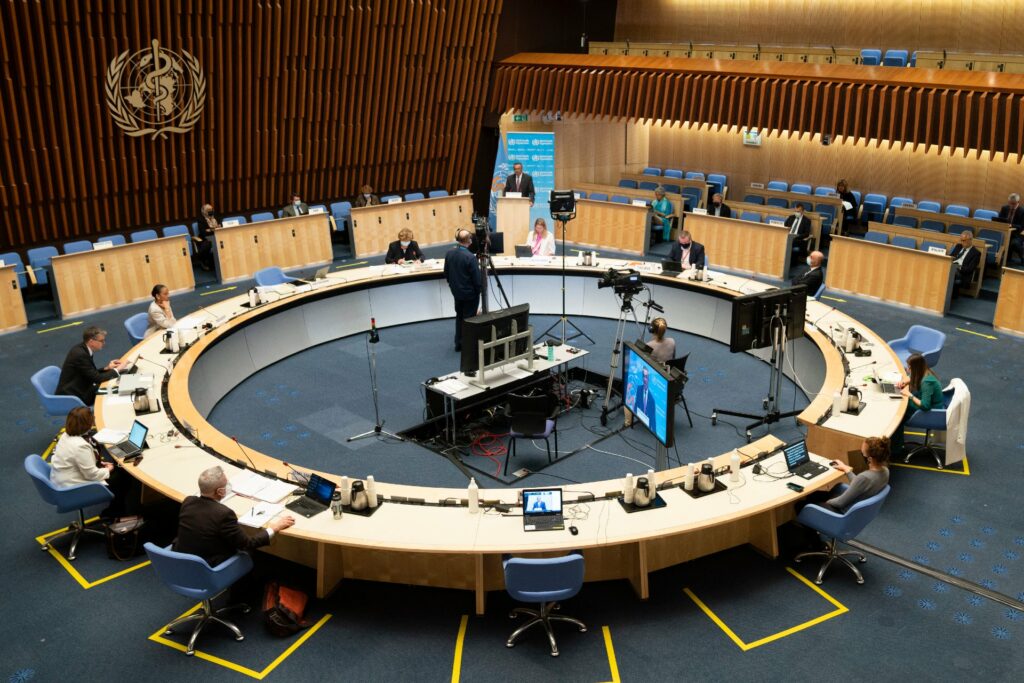
These gaps emerged quite strikingly during the 74th WHA, when even the space for Member States discussions was reduced to the minimum. The highlight of the last WHO assembly – apart from the decision to greenlight negotiations for a new pandemic treaty and reconvene a special session in November 2021 to this end – is best captured in the WHA post-closure event on 31st May, when the heads of the WHO, the International Monetary Fund (IMF), the World Bank Group (WB) and the World Trade Organization (WTO) jointly announced a new US$ 50 billion plan to align health trade and finance to ending the pandemic and securing a global recovery[6]. The call to action by this unusual quadrilateral grouping allegedly comes at a time when the world is vertically split between rich countries’ reopening mood and “the worse that is yet to come for countries in the global South” predicted by the UN Secretary General at the G20 Global Health Summit. Officially originated from one IMF publication[7] and from the analysis of the International Chamber of Commerce and the Eurasia Group, both making the economic case for global vaccination[8], the unprecedented initiative calls for upfront financing, upfront vaccine donations, and upfront precautionary investments and planning. The claim is that vaccinating people is a modest investment in comparison to the trillions spent on national stimulus plans. The four organizations shepherd the joint commitment – they say – to scale up needed financing, boost manufacturing and ensure the smooth flow of vaccines and raw materials across borders, to “dramatically increase vaccine access” that is required to support the health response and economic recovery[9].
This post-WHA announcement, situated at the eve of the G7 meetings (11-13th June), holds a few perplexing implications. Apart from the rhetoric of engagement, how the new architecture will be translated operationally is not obvious at all; the joint move officially defines the contours of IMF involvement in health, an inconvenient novelty given the already overwhelming role of the World Bank in fostering health financialization[10]. Those who have worked on infectious and communicable diseases know very well that none have been controlled without a test and treat strategy. Any strategy of engagement on COVID-19 that focuses on vaccines only is clearly flawed from a public health point of view, and it also fails from a human rights perspective. While the wealthy vaccinate and protect themselves, millions of marginalized people continue to become sick and die without even having access to a test, as we keep witnessing in many countries in the global South. Because COVID-19 is here to stay, the real need is to rapidly enhance access to community-based testing, and urge the international community to swiftly remove any potential intellectual property (IP) barriers to support amplification of research and development efforts for more effective tools. No reference to these considerations can be found in the health finance and trade alignment put forward by the heads of the WHO, IMF, WB and WTO.
Instead, the quadripartite move is clearly placed – in the geopolitics of health events in the second year of COVID-19 – to lend its support to counterbalancing, and indeed neutralizing, any serious diplomatic endeavor at the TRIPS Council negotiations in Geneva. There, multilateral discussions have unfolded for ten months now on the proposed waiver of intellectual property rights (IPRs) to expand access to scientific knowledge and enhance local production capacities for all possible remedies against COVID-19 (vaccines, diagnostics, therapeutics and any key protection and medical devices). This government-driven policy measure, presented to the WTO by India and South Africa in October 2020, has all the legitimacy of international law – the possibility of a waiver is provided in Art. IX (4) of the Marrakesh Agreement constituting the WTO. The India and South Africa proposal to suspend monopoly rights has increasingly gained consensus worldwide. Over 100 WTO Member States have endorsed it, and so have several UN agencies, trade experts, internationally accredited scientific centers, as well as hundreds of parliamentarians in the European Union and a myriad of civil society organizations. The issue has become a symbolic marker of the global political equilibrium after the pandemic trauma. It does not appear so incredible therefore that the new international public health order – and the few players that currently maneuver it – should continue to generate declarations and initiatives with the sole purpose of ensuring that the TRIPS waiver simply does not materialize. Several alternative trade and finance schemes are being devised, that firmly confirm the pre-COVID state of affairs. For them, the temporary dismantling of monopoly regimes in response to a health emergency would imply an unacceptable precedent – the recognition of the inherent dysfunction of globalized knowledge economy. The G20, in a concerted action with the European Commission, is embodying this syndrome of denial: the Rome Declaration, the output of the Global Health Summit, ignores the waiver idea altogether[11].
Whether the G20 Health Ministers meeting, scheduled in Rome on 5-6 September, will amend this regressive route, under the pressure of the now dominant Delta variant, is difficult to tell. Surely, the coming months will define a historic testing ground for global health, in the post-COVID interregnum. The WHA Special Session on the pandemic treaty and the WTO 12th Ministerial Meeting, next November, will manifest to what extent the international community is serious about the lessons learnt from COVID-19. So far, in the geopolitical game around COVID-19, global health democracy is being increasingly left behind.
Nicoletta Dentico is a journalist and a senior policy analyst in global health and development. After directing Médecins Sans Frontières (MSF) in Italy, she played an active role in the MSF campaign on Access to Essential Medicines. She worked as consultant of the World Health Organization and she currently leads the global health programme for the Society for International Development (SID).
[1] https://theindependentpanel.org/.
[2] https://apnews.com/article/health-china-coronavirus-pandemic-wuhan-8fa8edb073629c692ac51772e5e9d775?utm_source=Sailthru&utm_medium=email&utm_campaign=Aug3_MorningWire&utm_term=Morning%20Wire%20Subscribers.
[3] https://www.statnews.com/2020/05/29/trump-us-terminate-who-relationship/
[4] https://www.g20.org/wp-content/uploads/2021/07/G20-HLIP-Report.pdf
[5] https://gh.bmj.com/content/6/6/e006392.
[6] https://www.who.int/news/item/01-06-2021-new-50-billion-health-trade-and-finance-roadmap-to-end-the-pandemic-and-secure-a-global-recovery
[7] https://www.imf.org/en/Publications/Staff-Discussion-Notes/Issues/2021/05/19/A-Proposal-to-End-the-COVID-19-Pandemic-460263?utm_medium=email&utm_source=govdelivery
[8] https://www.who.int/news/item/03-12-2020-global-access-to-covid-19-vaccines-estimated-to-generate-economic-benefits-of-at-least-153-billion-in-2020-21
[9] https://www.washingtonpost.com/opinions/2021/05/31/why-we-are-calling-new-commitment-vaccine-equity-defeating-pandemic/
[10] https://rosalux-geneva.org/the-financialization-of-health/
[11] https://reliefweb.int/sites/reliefweb.int/files/resources/Global_Health_Summit_Rome_Declaration.pdf
